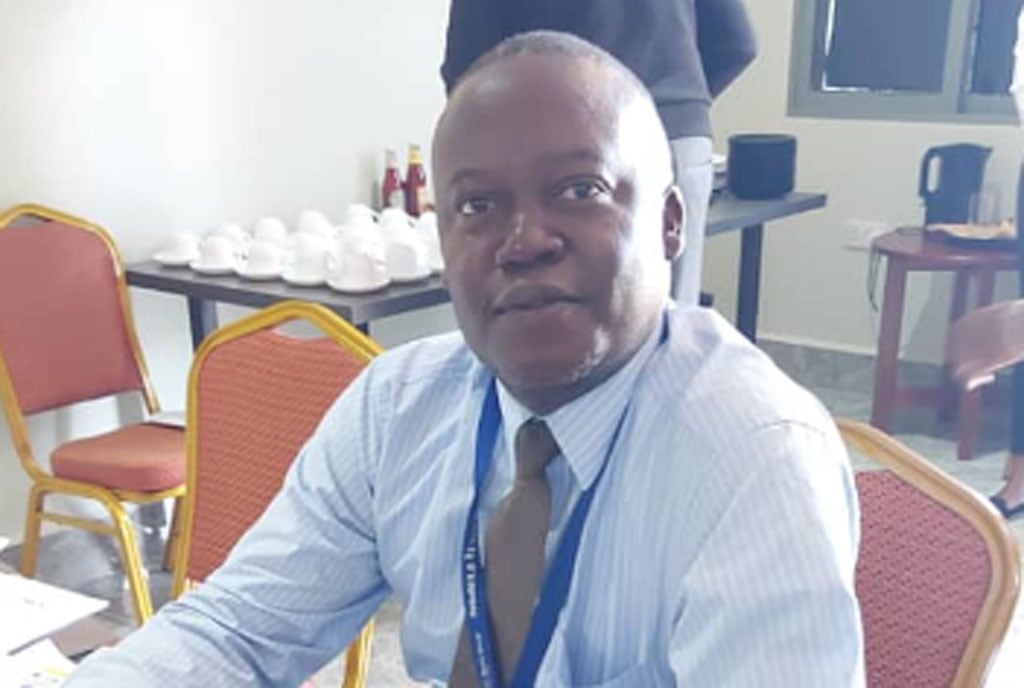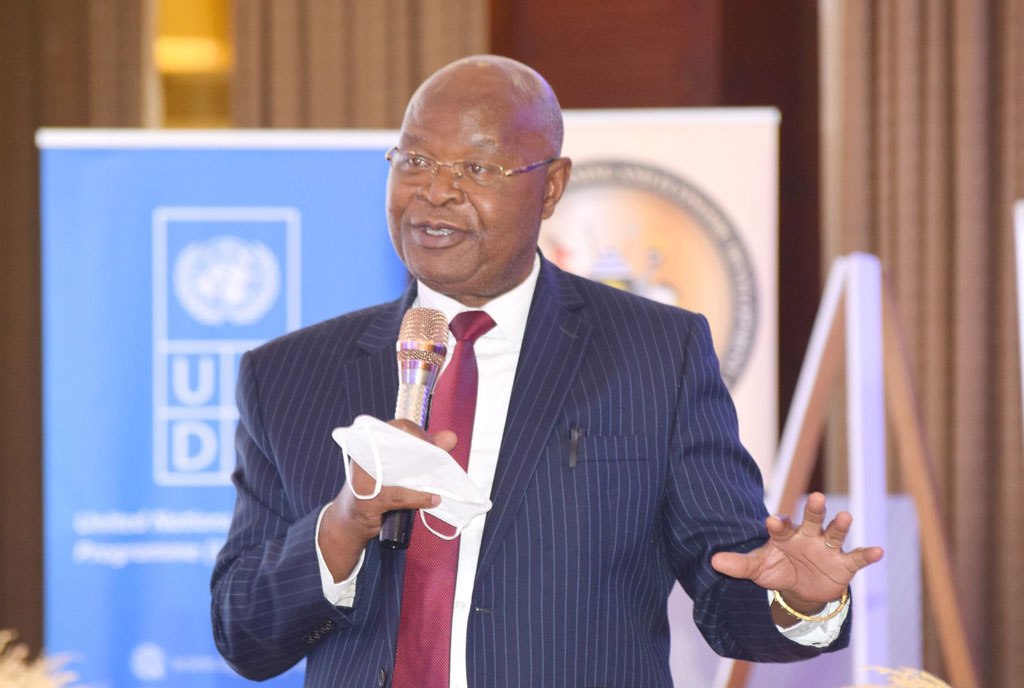Kenyan traders protest over Uganda’s seizure of their fish

Kenyan traders during the protest at Busia border point in Busia District on Saturday. PHOTO/DAVID AWORI
What you need to know:
- The traders blocked Busia border post at the weekend, paralysing traffic.
Kenyan fish exporters at the weekend blocked the border point at Busia in protest after the Uganda Fisheries Protection Unit (FPU) seized five of their trucks carrying fish worth KShs50m (about Shs1.5b).
The trucks were intercepted at Mpondwe border in Kasese District about two weeks ago, with the fish destined for the Democratic Republic of Congo.
This prompted the traders to close the Busia border at the weekend, paralysing the flow of trucks between Uganda and Kenya.
“We have closed this border to demand for the unconditional release of our trucks that were intercepted by the Ugandan military at the Mpondwe border post in Kasese,” Mr Hassan Omari, one of the fish exporters, said.
Waving placards, the fish exporters vowed not to allow any truck or vehicle to cross the border until their grievances have been met. Kenya deployed anti-riot police who tried to force the traders to end the demonstration in vain.
Calm was restored on Sunday evening after a team of Ugandan officials led by Busia Deputy Resident District Commissioner Mathew Tusubira met with their Kenyan counterparts.
From the meeting, it was agreed that representatives from the two groups would meet the Ugandan minister of Agriculture this week to secure the release of the fish.
Mr Yusuf Sefu, the chairperson of Kenya Fish Traders Association, said the impounded fish had all the required certification from both Kenya and Uganda Revenue Authority (URA).
According to Mr Sefu, whereas Uganda was claiming that the fish was from Lake Kyoga, it was from Lake Turkana.
“When you look at the impounded fish, it is salted fish from Lake Turkana, which we have all the years been exporting to the DR Congo; I am, therefore, wondering why Ugandan officers would stop goods that are passing through their territory to another country,” Mr Sefu said.
The FPU spokesperson, Mr Deo Sentiba, at the weekend explained why the trucks were impounded. “When our teams intercepted the trucks and ordered them to be opened for inspection, they refused and the trucks were impounded, while the suspects took off,” Mr Sentiba said.
Mr Tom Bukenya, the commissioner of Fish Control and Regulation at the Ministry Of Agriculture, Animal Industry and Fisheries (MAAIF), told Daily Monitor that the impounded fish was immature Nile Perch and Tilapia from Lake Kyoga, which had been smuggled into Kenya and repackaged for export to DRC.
Ms Joyce Ikwaput Nyeko, the director of fisheries at MAAIF, said Uganda would not allow trade in immature fish to flourish through her territory.
Earlier, the State minister for Fisheries, Ms Hellen Adoa, accused some government officials of abetting illegal fishing.
The minister, who was on a tour of National Fisheries Resources Research Institute in Jinja City last week, said the individuals include State House masqueraders, officials from Uganda Wildlife Authority (UWA), Uganda Revenue Authority (URA) and FPU.
But FPU spokesperson Sentiba said: “We are fighting illegalities, then how can we engage in carrying out illegalities? No, it’s not true.”
Mr Ian Rumanyika, the manager for public and corporate affairs at URA, described the allegations as “far from the truth”. “URA’s role is to facilitate transit of goods that are passing through Uganda. So I am wondering how URA comes in; that is far from the truth,” he said.
Mr Bashir Hangi, the UWA spokesperson, said they were not aware of any of their people involved in illegal fishing.
Background
Constant trade wars among EAC partner states cast doubt over the future of integration not only in the EAC but Africa as a whole. Two months ago, Kenya slapped a seven percent levy on milk imports from Uganda, further straining relations between the two EAC countries.




